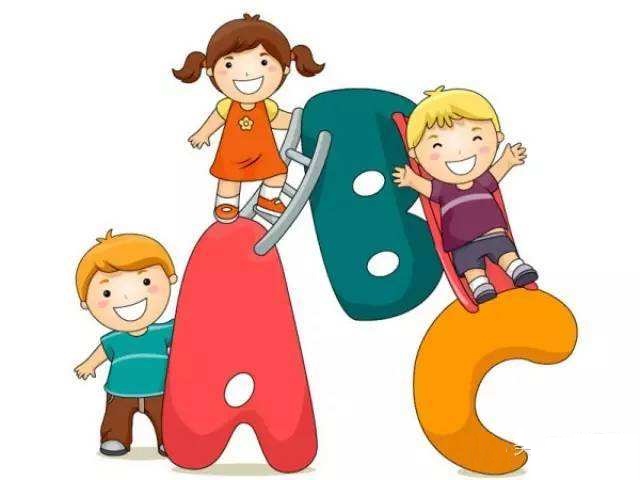常犯的英语错误用法纠正
世人都会犯错,学习中文会犯错,学习外语自然错误更多。下面就是小编同志给大家搜罗整理的,咱们时常容易用错的词汇短语和句式,既然有错了就要及时纠正。不要小瞧这些看似不明显不易被察觉的错误用法,在实际运用过程中是会导致表达不清楚,发生歧义或者愈发严重错误的,现在纠错开始:
1、 number, n数字
[误]He found a large number of mistake in his homework. [正]He found a large number of mistakes in his homework.
注意:单独的number,是单数,"a large number of•••都用a large of••••••字面意思就是很大数量的••••,就是大量的什么东西••••复数名词",意为大量的
2、last adj最后的,v持续、延续
(1)[误]This is the newest news. [正]This is the latest news.
注意:"最新消息"应为latest news,因为最晚到的新闻才是最新消息,请注意英语与汉语的区别。Last one指最后一个,the latest指最新的
(2)[误]I saw my brother the last week. [正]I saw my brother last week.

注意:当谈到与目前有关的上月、上星期等概念时只能用last month, last week,而不能加定冠词,the last可用于表示一系列词的最后一个,如:That was the last Christmas I spent at home.但the last可以用来表示持续到现在的一个长时期,如:I am busy for the last week.
3、learn学习 学到
[误]The teacher said:"You must study this poem by heart."[正]The teacher said:"You must learn this poem by heart."
注意: study与learn在作"学习"讲时,常常可以互换,但learn侧重于学习成果或初级阶段的模仿性学习,如:The little baby is learning to walk.而study则多侧重于学习的过程,如:I'm studying at this college.而learn…by heart则是"记住"、"背诵"之意。
4、leave离开,
(1)[误]I'll leave Beijing to Shanghai. [正]I'll leave Beijing for Shanghai.
[析]leave for一词组为"去某地",如对话中常讲I'll leave for Shanghai.因所离开的地点是双方都知道的则可以省略。
(2)Leave与forget
[误]I've forgotten my homework at home. [正]I've forgotten my homework.
[正]I've left my homework at home.表示以遗忘什么东西•••••
注意: 如果句中有地点状语则不要用forget,而要用leave.

5、lesson课程,教训
[误]I have two lessons of English.[正]I have two English lessons.
[正]I have two lessons in English. 我有两节英语课
注意:"我有两节英语课。"这一表达法如上,但美国老师讲他有两节课时则多用"I have two classes. "teach somebody a lesson为"教训某人",或"要吸取教训",如:Let this thing teaches you a lesson.
6、lend借给 (注意:lend 和borrow的区别 )
[误]Please borrow me your bike.[正]Please lend me your bike.
注意 :borrow是指"借入",如:I want to borrow some books from the library. lend是"借出",如:I can lend you my bike.而keep为"借多久": 如How long can I keep it?
7、let ,实意动词V让 , 祈使句引导词
(1)[误]The teacher lets the students clean the classroom as a punishment. [正]The teacher makes the students clean the classroom as a punishment.
注意: 虽然let, have, make有相同的用法,但make和have含有迫使某人做某事的意思。Let作为实意动词的时常,“让”没有强迫意味,只表示一般含义的许可,不是强制的
(2)[误]Let's go to the park, will you? [正]Let's go to the park, shall we?
[误]Let us go to the park, shall we?[正]Let us go to the park, will you?
注意:Let's go的反意疑问句是shall we?而Let us go的反意疑问句则是will you?
8、life生活、生命
[误]Many people lost their life in the Second World War.[正]Many People lost their lives in the Second World War.
注意: life作为"生命"、"性命"时应为可数名词;当泛指一般"生活"讲时则为不可数名词,如:Which do you prefer, town life or country life?又如:Life is not all fun.
以上这些词汇都是最基础最常用的,但是往往套用句式和不同词汇搭配的时候很多介词短语,或者动词、名词的单树福有变化,同时实际意义发生改变。注意到错误之后及时改正,然后继续在学习英语的道路上负重前行。
免费领取价值155元的纯外教试听课,外教发音超标准,一对一的教学模式,上课互动很多,有多个课程体系(雅思,托福,职场商务,少儿英语,日常英语,职业英语)等等,还提供个性化定制教学服务,提升英语水平,效果扛扛滴,不信,可以来免费试听:http://www.acadsoc.com.cn/lps/lp4.htm?search=350982
<上一篇 有好的英语学习班学习英语吗?
下一篇> 使用英语词汇精准解析






评论